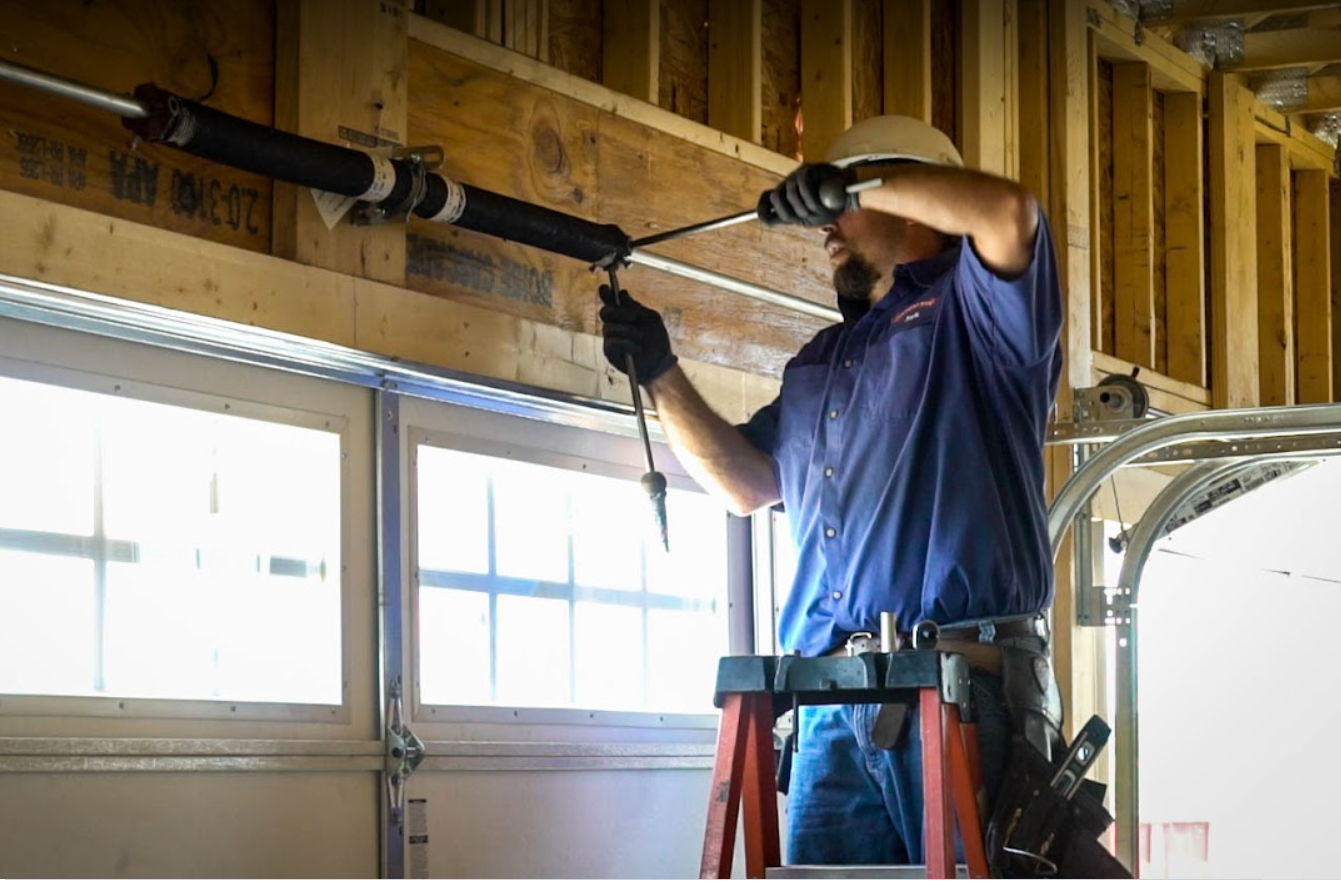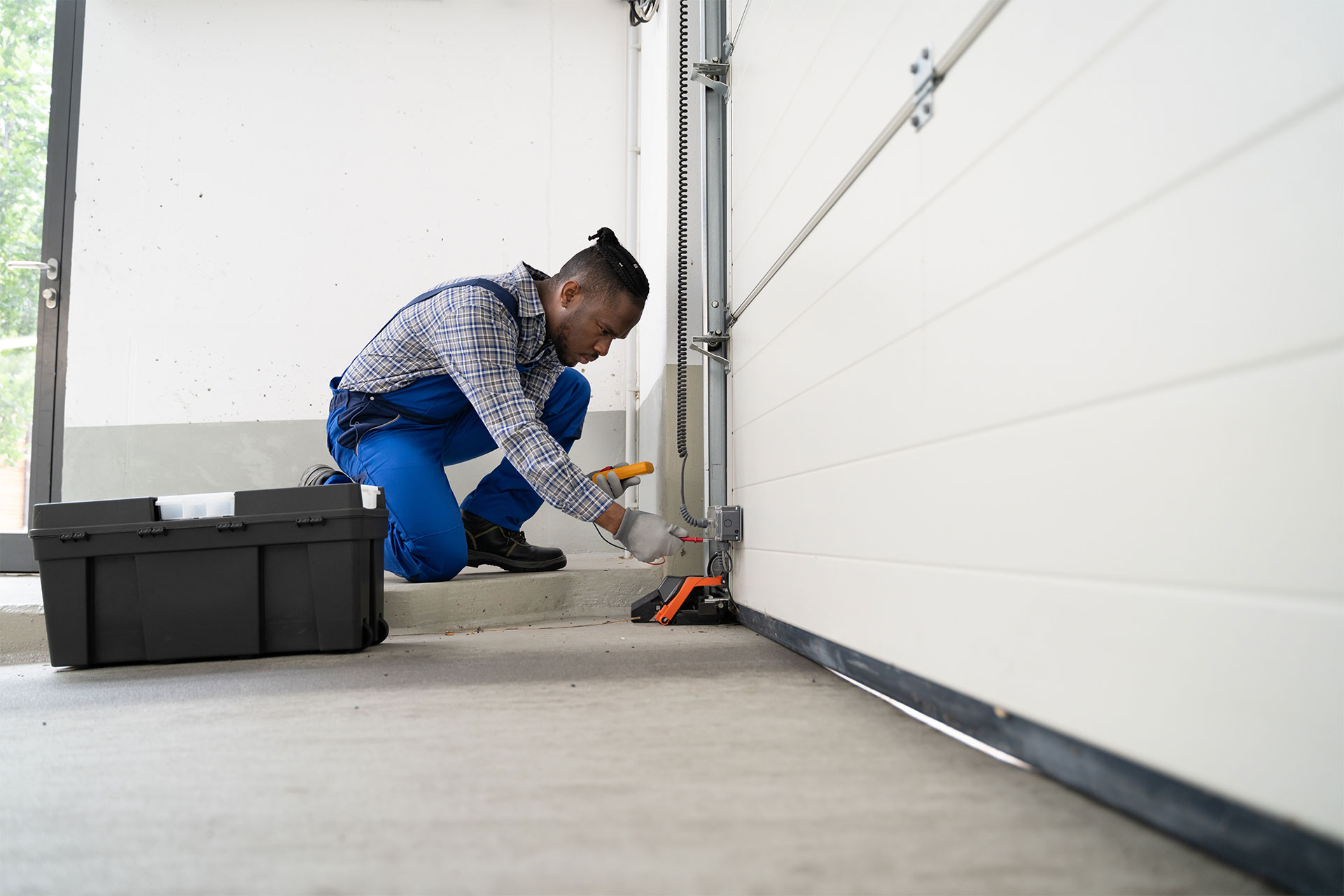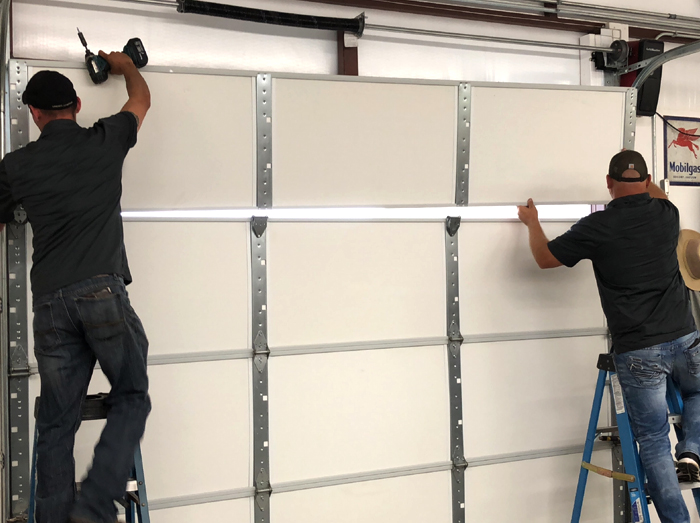Garage Door Balance Adjustment Reseda Durable Garage Door Repairs

One of the most telltale signs of a faulty garage door sensor is if the door does not close utterly. Instead of totally closing, the door might reverse and open again when it senses an object. In some instances, you might notice that the garage door initiates closing but then rapidly reverses again up. This behavior can be attributed to misaligned sensors, allowing them to falsely interpret an obstruction.

Physical obstruction is one other issue to think about. Dirty or blocked sensors might not perform appropriately. Check to see if there could be any filth, particles, or spider webs obstructing the sensor lenses. A easy cleaning could resolve the issue. Using a delicate material, gently wipe the lenses to make sure they are clear and freed from any obstacles.
Garage Door Suppliers In Reseda Garage Door Tune-Up Services
A malfunctioning garage door opener remote can sometimes be misdiagnosed as a sensor problem. If the remote fails to speak with the garage door, it’s worth testing the sensors immediately. Use the wall button to open and shut the door. If the door operates usually with the wall switch but not with the remote, the issue could lie with the remote itself.
Testing the sensors immediately may help determine their operational status. To do that, you ought to use an object to dam the sensor beam whereas the door is closing. If the door reverses upon sensing the obstruction, the sensors are likely functioning correctly. If the door continues to close with out reversing, this signifies an issue with one or each of the sensors.
Environmental factors could also affect sensor performance. If the sensors are uncovered to heavy rain, snow, or excessive warmth, they may malfunction. Even humidity can play a role in sensor reliability. If the weather has been notably harsh, think about whether or not these situations could be impacting your sensors.
Electrical issues also can lead to sensor malfunction. Inspect the wiring connecting the sensors to the garage door opener. Look for frayed or broken wires, which can prevent the sensors from receiving power or communicating properly with the garage door system. If the wiring looks good, check the power supply to the opener itself.
Garage Door Weather Stripping Reseda Garage Door Solutions and Tips
In some situations, inner malfunctions could happen within the sensors. Over time, the internal mechanisms can wear out, leading to unexpected failures. If cleaning and adjustments do not yield positive results, sensor replacement could also be one of the best course of action (Wooden Garage Doors Reseda). see this page Many garage door sensors are relatively inexpensive and simple to switch.
In addition, it may be prudent to consult the manufacturer’s handbook for particular troubleshooting tips related to your model. Each garage door system can differ, and the guide could present guidance that is notably related to your scenario. Following these pointers can often enhance the troubleshooting course of.
Wooden Garage Doors Reseda Safe Garage Door Repair Techniques
Regular maintenance can prolong the lifetime of your garage door sensors. Periodic cleansing, testing, and visible inspections may help catch points early earlier than they escalate into significant problems. Regular care can be positive that your sensors are in good working situation, sustaining the protection of your garage door operation.

In abstract, the importance of figuring out the method to inform if a garage door sensor is dangerous can't be overstated. From evaluating physical obstruction and sensor alignment to testing the wiring and inner elements, a variety of factors contribute to sensor functionality.
Garage Door Track Alignment Reseda CA 24-Hour Garage Door Service
Regular maintenance, combined with thorough testing, can also stop future points (Garage Door Track Repair Reseda CA). When doubtful, reaching out to professionals can provide reassurance and much-needed expertise. Ultimately, making certain that your garage door sensors are functioning accurately enhances the general safety of your own home and its automated methods.
- Check for blinking or stable lights on the sensor; a stable gentle typically indicates normal operation, while blinking might signify an issue.
- Test the alignment of the sensors; misaligned sensors can stop the door from functioning correctly, resulting in a potential failure.
- Look for any visible damage or obstructions near the sensors; dirt, spider webs, or physical breakage can intrude with their operation.
- Listen for unusual sounds when the garage door is operated; grinding or clicking noises can point out sensor malfunction.
- Conduct a guide check by putting an object within the door’s path; if the door would not reverse, the sensors may be defective.
- Inspect the wiring connected to the sensors for frays or unfastened connections that would disrupt power supply or functionality.
- Evaluate the temperature circumstances; extreme weather can have an effect on sensor performance, leading to temporary issues.
- Use a multimeter to check for power running to the sensors; a lack of voltage can indicate a sensor drawback or wiring concern.
- Consider the age of the sensors; older fashions might turn out to be unreliable and better replaced rather than repaired.
- Seek professional help if the issue persists regardless of troubleshooting; an professional can diagnose issues that will not be immediately apparent.undefinedHow can I tell if my garage door sensor is malfunctioning?undefinedCheck for a pink or amber gentle on the sensor. If it’s not illuminated or blinking, the sensor may be dangerous. Additionally, you'll have the ability to manually block the sensor and see if the garage door reacts properly — if it would not reverse, the sensor would possibly want replacement.
What are the widespread signs of a defective garage door sensor?undefinedCommon indicators embrace the garage door failing to close fully, erratic motion, or not responding to remote commands. A misaligned sensor may additionally set off these points, so inspect their positioning as a part of your diagnostic course of.
Can a nasty garage door sensor prevent the door from closing?undefinedYes, a malfunctioning sensor can cause the garage door to reverse or fail to shut. This is a safety feature designed to forestall accidents or accidents, so pay attention to the conduct of your garage door.
Sectional Garage Doors Reseda CA Custom Garage Door Installations
How do I clear my garage door sensors?undefinedTo clean garage door sensors, gently wipe the lenses with a delicate, dry material. Avoid using harsh chemical substances, which may damage the sensor. Regular cleansing can improve performance and stop sensor-related issues.
What ought to I do if my garage door sensor is misaligned?undefinedCarefully realign the sensors so that they face one another immediately. Use a stage to check their positioning. If aligning them doesn’t resolve the issue, consider seeking skilled assist for additional inspection.
Top Garage Door Companies Reseda CA Garage Door Troubleshooting Tips
Is it essential to exchange both sensors if one is bad?undefinedWhile it is not strictly needed to replace each, doing so is advisable. Installing a new sensor with an old one might result in compatibility points, affecting the garage door's performance.
Can pop over here weather have an result on the performance of garage door sensors?undefinedYes, extreme climatic conditions can impact efficiency. Heavy rain, snow, or humidity may obscure the sensors or have an effect on their alignment. Regular maintenance and inspection throughout seasonal modifications can help mitigate these results.

Local Garage Door Supplier Reseda CA Broken Garage Door Fixes
What if my garage door sensor still doesn’t work after replacement?undefinedIf the brand new sensor doesn’t resolve the issue, check for wiring problems or consult a professional technician. There may be extra points with the garage door opener or different elements that require attention.